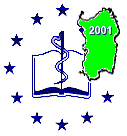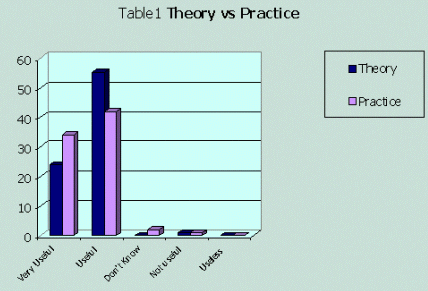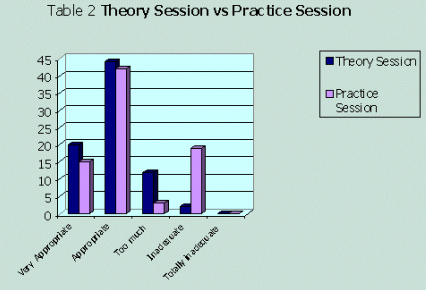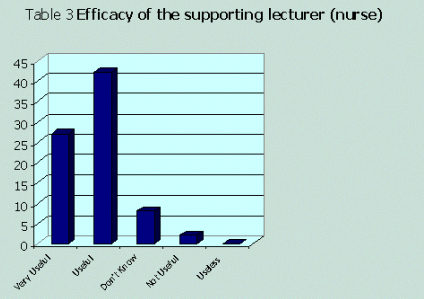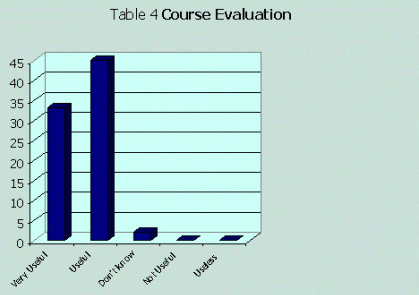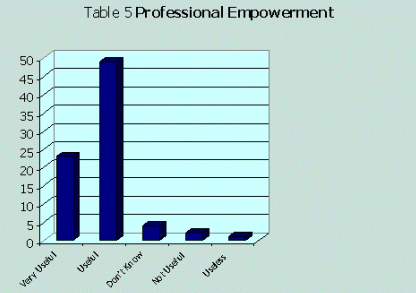|
|
|
Evidence-based nursing information at Scuola superiore per le formazioni sanitarie - Stabio, CH. Chiara Bassi, Ivan Cinesi, Andrea Cavicchioli Ce.V.E.A.S. - Centre for Evaluation of Effectiveness of Health Care V.le Muratori, 201 - 41100 Modena (Italy) c.bassi@ausl.mo.it |
|
|
|
|
|
|
|
Background In March 1993 the Swiss Government, Ticino County and Swiss Red Cross have given life to the Scuola superiore per le formazioni sanitarie in Stabio. The school joins the all'École Supérieure d'Enseignement Infirmier di Losanna and the Kaderschule für die Krankenpflege di Aarau, in offering courses aimed at the attainment of diplomas. The qualifications offered by SSFS are: Swiss Cross higher grade certificates in the following areas: * Management * Teaching * Clinical practice in: geriatrics,mother and child, oncology, mental health, public health. Swiss Cross higher grade diplomas in the following areas: - Management - Teaching - Clinical Practice The courses last from three to five semesters and are open to health professionals with a diploma approved by the Swiss Red Cross (dietists, physiotherapists, nurses, lab technicians, obstetricians, first aid staff, operating theatre staff, radiology technicians). The decision to introduce a course on the bibliographic research stems from the need of the nurses to develop new working methods and to assimilate new scientific and technological information. This to enable them to elaborate, introduce and evaluate working methods based on effective scientific knowledge. In order to respond to new needs, the school has offered courses for the past two years on "How to conduct a bibliographical research". Methods The main goals of the course are: Provide students with bibliographic competence, using the traditional information instruments (medical information sources, particularly the main bibliographic research databases and sites). Promote the use of Internet as an essential information source and support for nursing work. The first course was held in spring 2000 and lasted two days, with 52 students (2 classes). Classes were held in a fully equipped computer room allowing students to alternate theory and practice. Topics of the course were: use of search engines, an illustration of various sources available on the web (electronic journal, texbooks, ect. ...), search on biomedical databases with emphasis on Medline database (Pubmed version). Lessons were given by a documentalist and an executive nurse. However the information provided was not exhaustive and not quite appropriate for them as they lacked basic knowledge: how a scientific article is structured, types of publications, bibliographic citation (in view of a final essay), how to build an effective search strategy. This lack of competence prevented the students from fully exploiting the practical skills acquired during the course. Moreover nurses have different requirement. It was also acknowledged the nurses need different information from other users such as doctors; not so much bibliographical data as more factual data, based on direct experience particularly in the Italian and French context. Therefore it was decided to integrate these 2 days with an extra day dedicated to this type of theory concentrating the practice session on the use of institutional sites rather than on the bibliographical search. The preliminary theoretical session was held in September (it was repeated for the four classes to a total of 104 students). The session on practice was held in December (one and a half day for each class) once again in a fully equipped computer room. Topics of the course were: search engines, nursing practice - specialised sites, with special reference to the Italian and French ones, journals online, bibliographic databases (Medline database -Pubmed version-, the Cochrane Library and Guidelines databases). Each student had to search the available sources for the subject matter of his or her final essay. At the end of the course a questionnaire was distributed to each students to enable us to evaluate the immediate impression of the topics discussed (criticism and suggestion included). Data were analysed with MS Excel 97 Results The introduction of a preliminary theoretical session was determinant in filling the knowledge gap and allowed the students to get to the session on practice sufficiently equipped both with contents and language. (tab 1)
Nevertheless many students felt it necessary to have more time for the session on practice (tab 2)
The course's requirement included a basic knowledge of Internet: on the whole students were at different levels, though the majority were at an elementary level and therefore needed more time for the exercise. The presence of two lecturers, one documentalist and an executive nurse was determinant for the good outcome of the course (tab 3)
The supporting lecturer's role was to fill the gap between theory and practice by recalling students' attention, at the appropriate times, on their daily tasks. More familiarity and attention was perceived comparing with the first theoretical session which had been held by the documentalist alone, considered perhaps too remote from their own context. Conclusions The course was much appreciated (tab 4); many students were impressed both by the Internet potential and above all by the relevance to their work of the competencies acquired (tab 5).
We do not wish to undermine the importance of a practical exercise (the fact that all the lessons were held in a fully equipped computer room confirms it), nevertheless the introduction of a theoretical session revealed itself to have been the best choice for the course's setting. However we are still left with two widespread and well-rooted handicaps: the knowledge of the English language and of the computer science. Many students resent that much of the database search has to be done in English and that Italian and French literature is poorly represented. Moreover, probably due to the scarce chances of practising on their workplace, they are not familiar with the new technology. When asked which topics should have been addressed and which avoided nobody was able to answer, showing that they are still quite remote from this kind of reasoning. Although the nursing profession is acquiring a well defined role, also in Italy and in Ticino, we are just starting this process; many are not able to find within their work structure the chance to apply what they have learnt. Considering the success of the ground course the format will be repeated next year. The theoretical session will be kept and more space will be given, whenever possible, to Italian and French sources, given the students' needs. A preliminary questionnaire will be distributed to survey the students' curriculum, in order to identify the different backgrounds on the basis of which homogeneous classes will be formed, thus making the course even more effective. |
|
|
|
